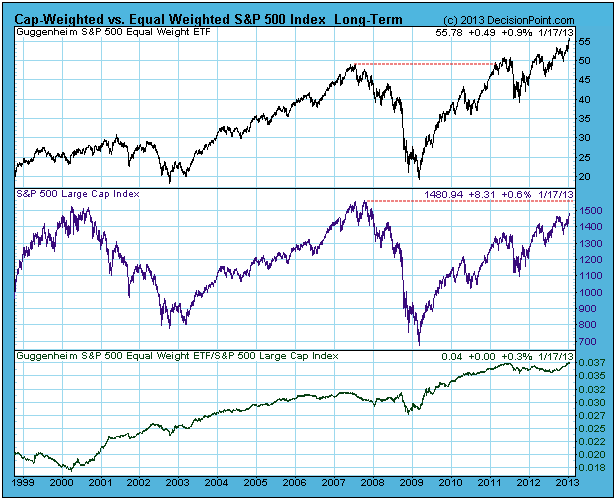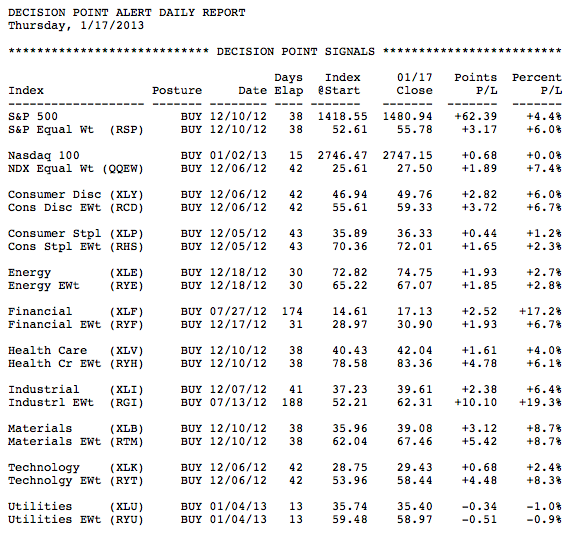I have long been a cheerleader for equal-weighted indexes versus cap-weighted ones, and now seems like a good time to demonstrate why. In a cap-weighted index stocks influence the price of the index based upon their market capitalization (price time number of shares). For example the top 50 stocks in the S&P 500 Index represent about 70% of the index value, with the remaining 450 stocks providing only 30%. With an equal-weighted index all stocks carry the same weight -- all the horses are pulling the wagon.
Decision Point follows a number of equal-weight indexes, with the chart below showing probably the most prominent -- the Guggenheim (formerly Rydex) S&P 500 Equal Weight ETF (RSP). As you can see, RSP is making new, all-time highs and exceeded the 2007 top two years ago; whereas the SPX is still struggling to reach the level of the 2007 top. SInce the 2009 low the SPX has advanced about 114%, but RSP has advanced 175%.
Of course, RSP does not always out-perform the SPX, but the relative strength line (bottom panel above) shows that it mostly does over time.
The table below the mechanical signal status on various market/sector indexes paired with their equal weight counterpart. Note how, when both indexes have the same days elapsed, the equal weight index usually has the largest percent profit. It is particularly notable in the case of the Technology sector, where the problems of a few large-cap stocks (AAPL, IBM) weighed heavily on the weighted index (XLK), but the effects of those stocks were muted in the equal weight ETF (RYT).
Equal weight indexes are not always the best choice -- they tend to move faster to the downside than their cap-weighted counterparts -- but in a bull market they should receive close consideration.


